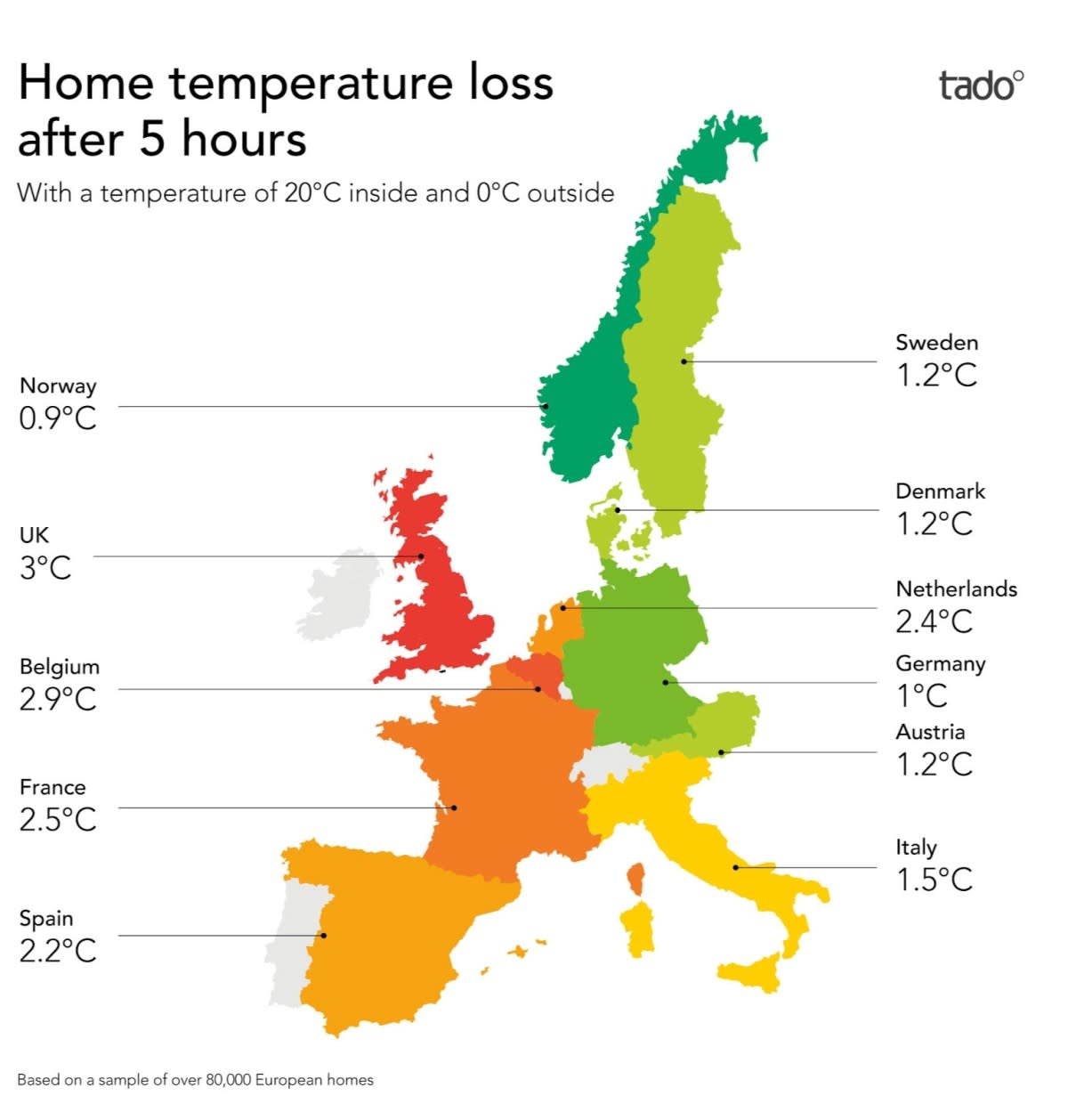How do the UK's leaky homes compare to other European countries?

UK homes are some of the worst insulated in Europe, leaving families exposed to rocketing heating bills this winter.
Research by climate management company Tado sampled more than 80,000 European homes and found that houses in the UK lose heat significantly faster than those in European countries.
In addition, new research published on Tuesday by the Office for National Statistics analysing energy efficiency of housing in England and Wales found significant disparities in home insulation quality between different UK areas.
Tado researchers found that a UK home with an indoor temperature of 20°C and an outside temperature of 0°C loses on average 3°C after five hours.
Compared with properties in Germany, UK homes are losing heat up to three times as fast.

The quality of home insulation will have a significant impact on the cost of heating a UK property this winter.
Energy prices increased on 1 October to almost double the level of last year.
Under the government's energy price guarantee, the amount providers can charge per unit of energy used has been capped so that the average household's bill will not exceed £2,500.

Families that use a large amount of energy may pay significantly more.
According to the ONS analysis of local authority areas, median energy efficiency scores in England ranged from 77 for Tower Hamlets in London to 47 in the Isles of Scilly in the South West.
In Wales, median scores ranged from 68 for Newport, Monmouthshire, Torfaen and Cardiff to 58 for Gwynedd and Ceredigion.
The figures showed that social housing was more likely to have a higher energy efficiency rating.
Some 15% of local authority areas had more than half of dwellings at energy efficiency band C or above; two-thirds of these local authorities were in London or the South East.
In England, Tower Hamlets and City of London had the highest percentage of dwellings in energy efficiency band C or higher (76% and 65%, respectively), while the Isles of Scilly and Pendle had the lowest percentage (14% and 22%, respectively).
In Wales, Monmouthshire had the highest percentage of dwellings in band C or higher (49%) and Gwynedd and Ceredigion had the lowest percentage (24% and 26%, respectively).

Politics Hub: Live updates and reaction as PM sets out energy plan
In June, an independent advisory committee exposed a “shocking” gap in government efforts to ensure homes are better insulated.
The Climate Change Committee said a "fast, sustained push to improve energy efficiency in homes and switch to electric heating" such as heat pumps, was needed "to reduce fossil fuel consumption". This, it said, would help people cope with high energy prices.
The average annual energy bill for UK households is around £40 more than it would be if insulation had carried on at rates seen before policy support was removed in 2012
The report also found that British homes are among the most heat-leaking in Europe.
The committee called for the government to consider increased funding for energy efficiency in fuel-poor homes, as well as a widespread publicity campaign for its promised new energy advice service and policies to incentivise home-owners to improve their properties.


